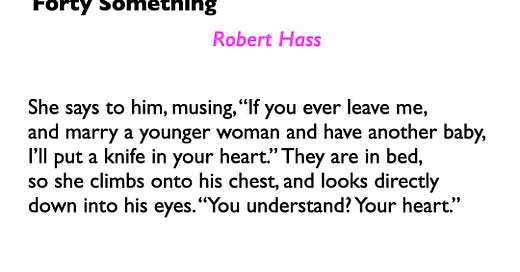It is fortunate, is it not, that, sometimes, the infinitely more beautiful melancholy of night slips into the flat jocund frisson of morning? A lights sits in the heart of darkness, in the tangle of thoughts that is left behind when the city sleeps; when the fires burn silently in empty bazaars, and the streets belongs to the dogs (we are just visitors). This eternal question, that is resolved, sometimes, in sleep; this mockingbird, who refuses to be still, in the porcelain cage of the chest, rises slowly into the obstinate dream current, and finds a music that is larger than its own wondering.
Mornings are my favourite time of day. Twilight too. Perhaps you know this, about me, that I like transitions- that which is alive finds sustenance in the mingling. Morning stains the eyelids, heavy with reverie. The waking world, as yet, unstuck from dream, floats, momentarily, between sleepy oblivion and dishevelled dawn.
A friend recently shared with me the concept of godhuli - a phenomenon that is described quite beautifully in Amit Chaudhuri’s novel, A Strange and Sublime Address:
Knocking on the bathroom door, Sandeep made a pest of himself by asking: “Chhotomama, what does godhuli mean?”….. “The word go means cow, and the word dhuli means dust. In the villages, evening’s the time the cow- herds bring the cattle home. The herd returns, raising clouds of dust from the road. Godhuli is that hour of cow-dust. So it means dusk or evening.”
. . . And the dust, yes the dust, rising unwillingly from the cows’ hooves and blurring everything.
- From Amit Chaudhuri’s A Strange and Sublime Address (1991) London: Minerva.
Quite serendipitously, I chanced upon this passage while reading Sumana Roy’s delightful musings on ‘walking as writing’ - Paayechari. My friend told me about godhuli, as only a bangali could, drenched in the romance of nostalgia and childhood, staining the evening with the poetry of that pink, that time of day, that is suspended between flower and sundown, in the dust kicked up by cows returning from their long days of grazing.
As I walked out that evening, and the chill of dusk began to creep in, I thought of transition, and the anxiety that is brought on by change. It is a delicate balance, this consideration of uncertainty. The mind, obsessed with order seeks a recalibration of sensation and space, when confronted with the dizzying unpredictability of time. It is a strange and sublime address, the moment, for instance, when day slips into night, wearing the colours of longing. It is stranger, still, when it is shared with another, that moment of love, when it is owned, not by the lover (singular - as in say, Prakrit poems of longing, desire, and separation), but by the impossible space that is formed only in companionship… Consider this:
What drew me to this poem is the hedonistic rush of a love that is possessive, and assured in its ownership of both lover and desire. This is a kind of surrender that is somewhat ironic in its assurance of familiarity. The dark undertone is perhaps unsettling to one who thinks about passion outside of the possessive pronoun. But what happens to that love that gives in to the impulse of surrender, so much so that it is violent in its assertion of need? This love stains. It draws boundaries, and encloses. Is there not a liberation in the contourless performance of self? The lover desires to be annihilated in the other’s embrace, the way the toddler desires novelty, unable to distinguish itself from the world. Isn’t this a kind of innocence, too? Doesn’t it strip away all artifice, in its vulnerability?
I’d like to end with another poem, by another lover. Padgett’s love cook turns loving into surrender again, but different from the possessive variety. This love is also deep, and endearing. Transforming passion into care, this love sweeps into a crescendo, whose volta is not reduced by the gentle build-up, which, like the Hass poem, does not shy away from excess.
I must thank Sujit Prasad, who was, without his own knowledge, instrumental in bringing both these poems into the same space of consumption, simply by sharing them around the same time on his social media. I have read Padgett’s poem before, but I would not have alighted on this train of thought if it were not for its happy collision with the Hass poem.
I hope you are well!
If you like what you read, do consider ‘buying me a coffee’.
Note: Those, not in India, who’d like to support the work I do at Poetly, write to me - poetly@pm.me.
If you wanna share this post…




